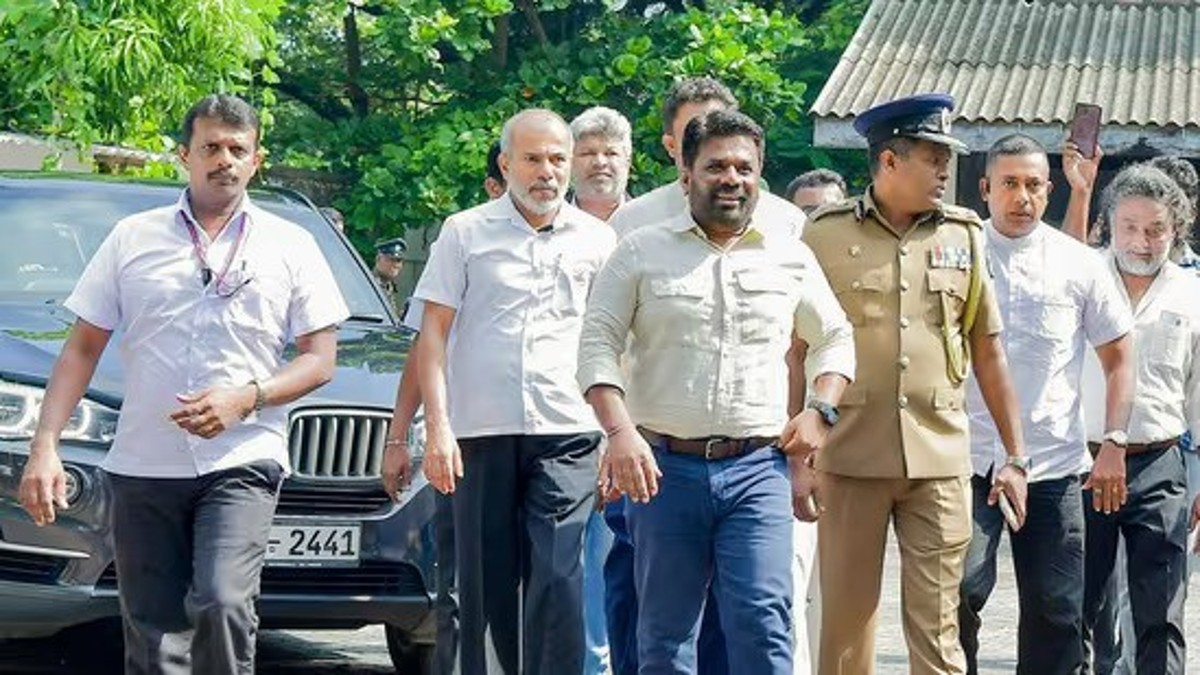) |
|
The recent sweeping victory of the Janatha Vimukthi Peramuna-National People’s Power (JVP-NPP) coalition in Sri Lanka's parliamentary elections holds significant implications for India. This victory, which saw the JVP-NPP secure a substantial majority, marks a dramatic shift in Sri Lankan politics and necessitates a reassessment of India's engagement with the island nation. The Indian High Commissioner's prompt congratulatory visits underscore the importance India places on maintaining strong bilateral ties with its southern neighbor. India's consistent and substantial financial and material support during Sri Lanka's economic crisis – amounting to approximately $4 billion without stringent conditions – stands in stark contrast to the more cautious approaches of other nations, including the International Monetary Fund (IMF). This generous assistance, provided during a period of severe shortages, cemented India's position as Sri Lanka's most reliable benefactor. The article highlights India's multifaceted engagement, ranging from humanitarian aid and economic investments to energy projects and tourism promotion, all aimed at boosting Sri Lanka's economic recovery and stability.
The election results themselves reveal a complex interplay of factors. The JVP-NPP's unexpectedly large victory, exceeding even their own projections, can be attributed to several factors. The perceived inexperience and perceived arrogance of the rival candidates, particularly former President Ranil Wickremesinghe, inadvertently contributed to the JVP-NPP's success. Wickremesinghe's offer of guidance, far from helping, backfired, portraying him as condescending. Similarly, the main opposition's failure to retain Tamil votes further weakened their standing. The Tamil electorate's support for the JVP-NPP, following the Sinhala-Buddhist majority's choice of Dissanayake as president, indicates a strategic shift. It signals a potential rejection of entrenched Tamil political factions perceived as self-serving and highlights a broader desire for political stability and effective governance. This is not necessarily an endorsement of Sinhalese nationalism, but a pragmatic response to internal Tamil political divisions.
The election's outcome presents both opportunities and challenges for India. The JVP-NPP's relatively strong showing in the traditionally Tamil North raises questions about the future of ethnic relations in Sri Lanka. While not signaling an immediate end to ethnic politics, it does suggest a willingness among some Tamil voters to consider alternatives to established parties. India's historically significant role in mediating ethnic tensions, particularly through its involvement in the Indo-Sri Lanka Accord and the 13th Amendment, may be recalibrated given the JVP-NPP's victory. India's commitment to a united and stable Sri Lanka remains, but its approach might need to adapt to the new political landscape. The Adani Group's controversial green energy project in Sri Lanka adds another layer of complexity. The JVP-NPP's initial stance against the project, combined with ongoing legal challenges, could impact India's investment climate. The resolution of this dispute and other similar issues will be crucial for maintaining harmonious relations.
A significant aspect of the bilateral relationship lies in infrastructure projects such as the proposed land bridge connecting India and Sri Lanka. While concerns exist in Sri Lanka about potential Indian influence, the JVP-NPP's leadership has historically shown less apprehension toward India. The land bridge, if realized, would greatly boost trade and tourism, potentially creating opportunities for both countries. The article notes that concerns about the project are largely rooted in historical anxieties rather than contemporary pragmatic considerations. The current political climate and the JVP-NPP's electoral mandate necessitate a re-evaluation of India's strategic approach. While maintaining the long-standing tradition of the first foreign dignitary to meet the new Sri Lankan president being from India holds considerable symbolic value, the recent trend of some neighboring countries prioritizing China over India as a first point of contact warrants attention. The article concludes by emphasizing the need for India to carefully navigate the evolving political landscape in Sri Lanka, balancing its strategic interests with its commitment to a stable and prosperous island nation. The future trajectory of Indo-Sri Lankan relations hinges on the JVP-NPP government's policy choices and its handling of the complex interplay of domestic and international factors.
Source: What Dissanayake's JVP sweeping Sri Lankan parliament polls means for India
